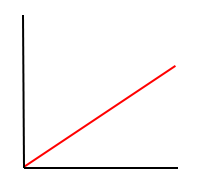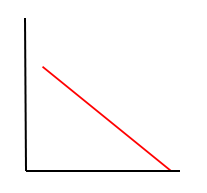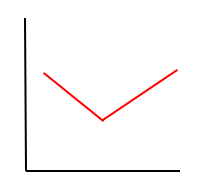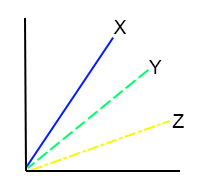IELTS Academic Writing Task 1: Line Graph

Line graphs are one of the most common tasks in the IELTS Writing test. Line graphs always show changes over time.They are used to describe a trend or trends pictorially.
A number of key. points have to be covered to produce a good answer:
- Try to write an introductory sentence, a body. and a concluding sentence.
- For your report, look at the “big picture” - what changes happened to all of the lines from the beginning to the end of the period shown, i.e. from the first year to the last, or is there a trend that all of the lines follow, e.g. an overall increase?
- Do not mention specific numbers or figures, which are details. Just mention general things like overall chance, highest and lowest.
- Never describe each line separately as the examiner wants to see comparisons.
- If the graph shows years, you will not have time to mention all of them. The key years to describe are the first year and the last year. You should also mention any special years, e.g. the year with a peak or a significant rise/fall.
- Start describing details in the body with a comparison of the lines for the first year shown on the graph, e.g. In 1990, the number of …
- Use the past simple tense, e.g. increased, fell for past years, and will or is expected / predicted to for future years.
- Do not make grammatical mistakes, such as the wrong use of the passive, e.g. the number was increased, continuous, e.g. the number was increasing, or perfect tenses, e.g. the number has increased.
Essential Expressions
Below are useful sentences for describing falling and rising changes in line graphs.| Case 01 Rising |
|
 |
1 Basic Sentence Patterns
|
2 Expanded Sentences (steady growth)
|
|
| Case 02 Falling |
|
 |
1 Basic Sentence Patterns
|
2 Expanded Sentences (steady decrease)
|
|
| Case 03 Failing then rising |
|
 |
1 Basic Sentence Patterns
|
Expanded Sentences(first, later)
- The number of items falls[decreases, goes down] at first and then begins to rise [increase go up].
- At first, there is a downward trend in the number of items, and then it turns into an upward trend.
- In the beginning, the number of items decreases, and after a while there is an increase.
Case 04 Describing different degrees of falling or rising
 |
1 Basic Sentence Patterns
|
Expanded Sentences

1 X: A sudden rise
- Type A From 1990 to 2005, the rate increased dramatically.
- Type B Starting from 1990, there was a fast rise in the rate.
- Type A During the period of 1990 to 2005, the rate increased steadily.
- Type B Until 2005, there was a regular increase in the rate.
- Type A Over the years. the rate goes up slowly.
- Type B Throughout the period. there was a gentle increase in the rate.
Mọi thông tin chi tiết, các bạn vui lòng liên hệ:
DU HỌC UNIGLOBE
10/3 Nguyễn Thị Minh Khai, Phường Đa Kao, Quận 1, TP.HCM
ĐT: (08) 35 173 345 – 35 173 678
Email: info@uniglobe.edu.vn
Website: www.uniglobe.edu.vn






bình luận